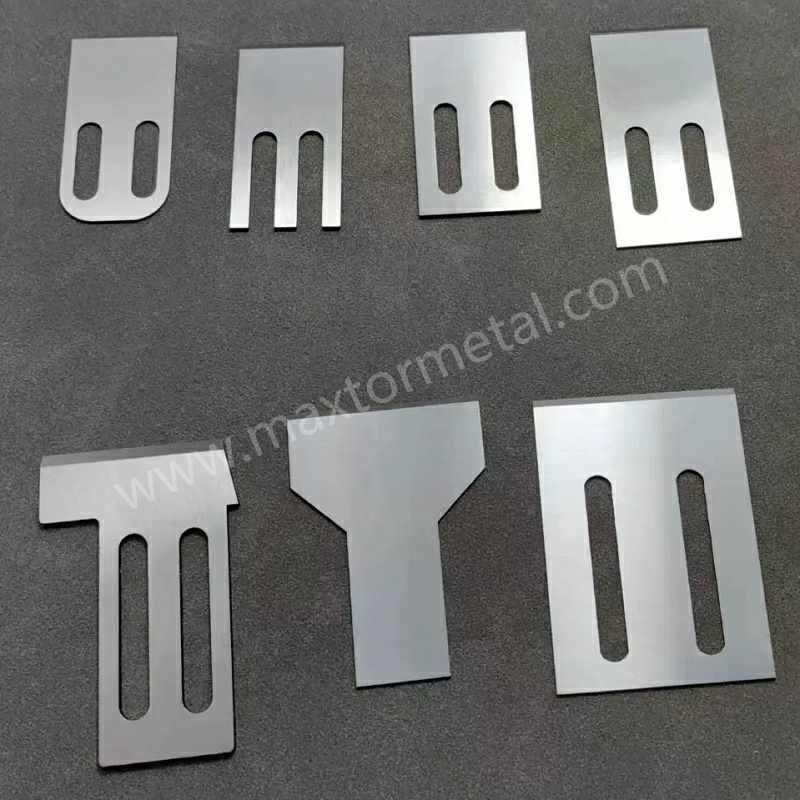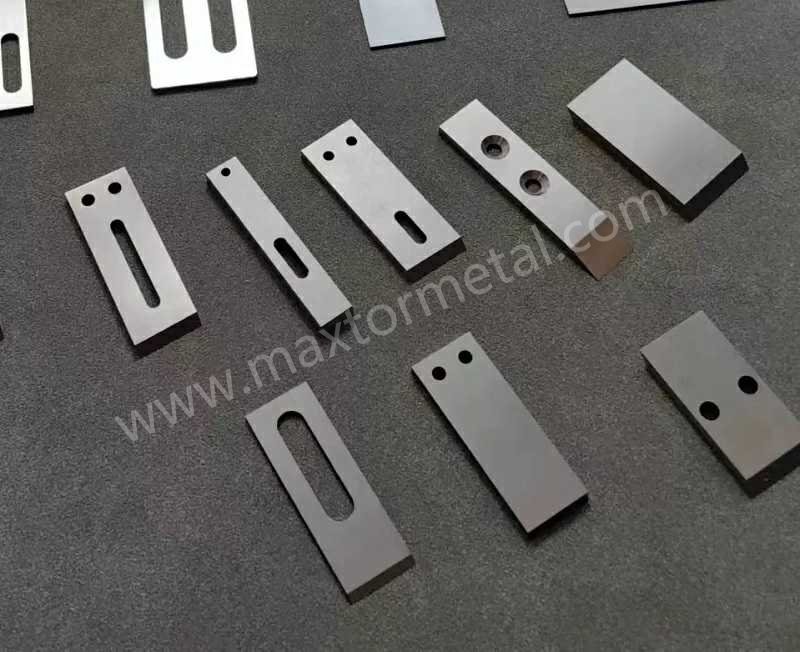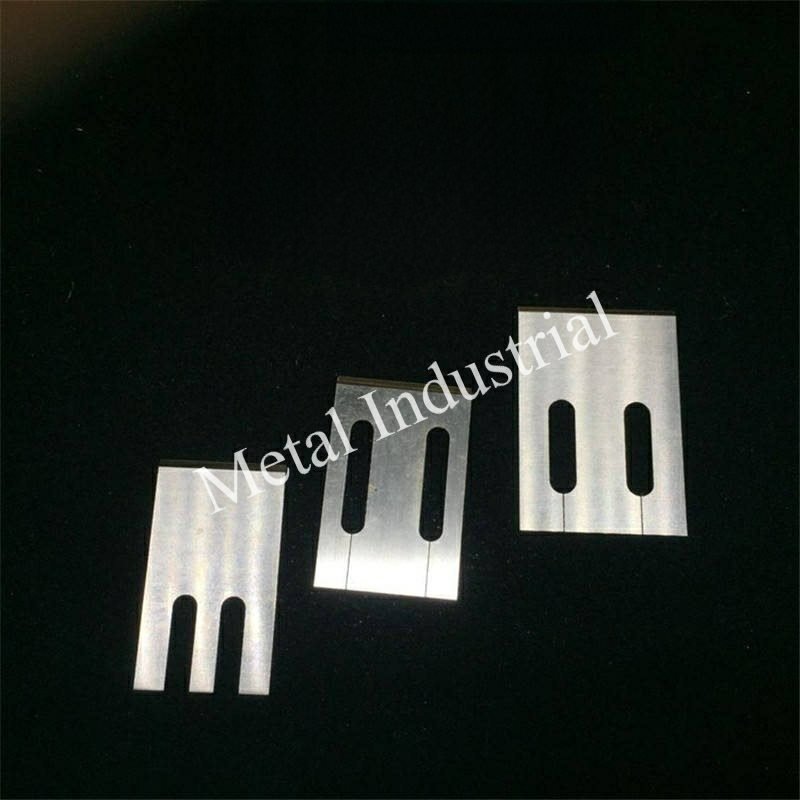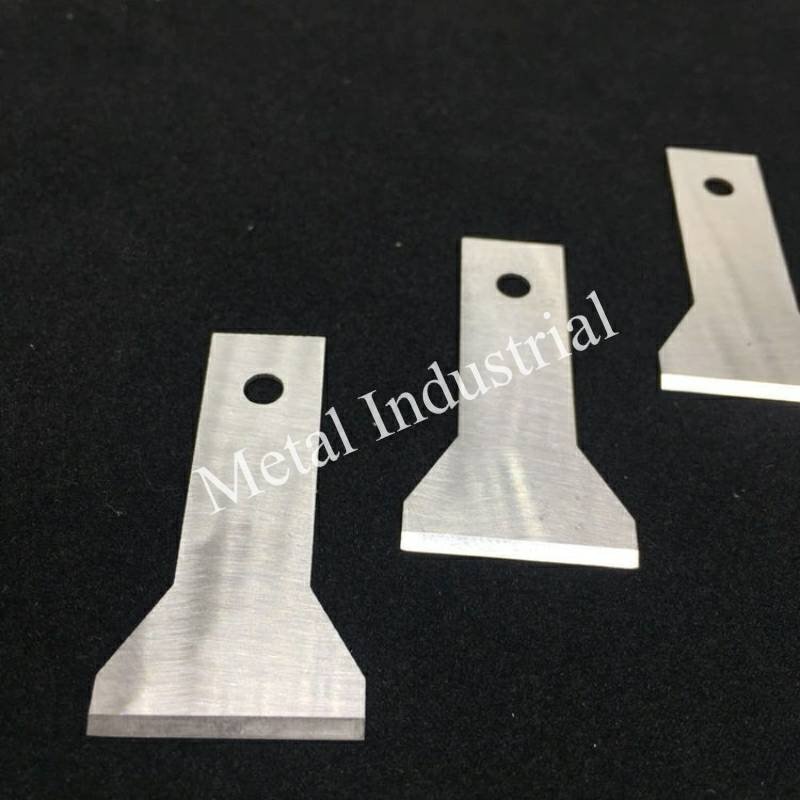
Choosing the right pelletizer knife is very important. It helps your machines work better and saves money over time. A good pelletizer knife keeps product quality steady and improves efficiency. For instance, the chemical industry needs strong and efficient pelletizer knives for nonstop pellet making. Strong knives also help companies follow strict rules. New materials make these pelletizer knives last longer and need less fixing.
Nanjing Metal has 18 years of experience making industrial knives. They create modern solutions to fit your needs. Their skill and new ideas make them a great choice for picking the right pelletizer knife. If you’re interested in learning more, please contact Nanjing Metal’s sales engineers for assistance.
Principaux points à retenir
Pick the best knife material for your pelletizer. Tough materials like D2 steel or carbide last longer and work better.
Use sharp knives for accurate cutting. Smooth, clean cuts keep products high-quality, especially in food and medical fields.
Buy good-quality knives to save money over time. Cheap knives wear out faster, causing more replacements and delays.
Choose the right knife type for your job. Rotary, fixed, and hot-melt knives do different tasks and boost performance.
Take care of knives to make them last longer. Clean them, check for damage, and oil moving parts to keep things working well.
Key Factors to Think About When Picking the Best Pelletizer Knife
Material Type and Compatibility
Le knife’s material is very important for how it works. Pick a knife material that fits your pelletizing system’s needs. For example, D2 steel is strong and lasts long, great for many machines. DC53 steel keeps its sharp edge, good for cutting different things. If your work involves rough materials, carbide knives are tough and hard, making them a smart choice.
Choosing the right material helps match your cutting needs. If the knife material doesn’t fit the job, it can cause problems and more repairs. Strong tool steels and alloys are hard, tough, and resist rust, making them useful for many tasks. By checking material features, you can make knives last longer and work better, saving time and money.
Cutting Precision and Consistency
Good cuts are needed to make high-quality pellets. Pelletizer knives should cut cleanly and evenly to keep the product looking good. Sharp knives make neat cuts, which help pellets stay the same size and shape. This is very important in industries like food and medicine, where everything must look the same.
The knife’s design also affects how well it cuts. For example, one-sided knives scrape and cut polymers cleanly. This design helps keep pellets in good shape. Also, controlling the system’s temperature helps the process, reduces waste, and keeps pellet sizes even. Buying knives that cut well reduces waste and saves time, making work faster.
Durabilité et résistance à l'usure
Strong knives are important for smooth work. Replacing knives often can slow things down and cost more. Knives made from D2 steel or carbide last longer, even in tough jobs. These materials stay sharp and work well over time.
Knives that resist wear are also important, especially for cutting rough materials. A strong knife won’t dull or break easily, keeping pellet sizes even and machines working well. Checking blade hardness helps improve performance. For example, systems with adjustable speeds and changeable parts work better and cost less while keeping products consistent.
By choosing strong and wear-resistant knives, your pelletizer works better, with less downtime and more productivity.
Coût vs. valeur à long terme
When picking a pelletizer knife, think beyond the price. Cheaper knives might seem good but cost more later. Spending on high-quality knives gives better results and saves money.
Good pelletizer knives last longer and work well for tough jobs. They stay sharp and keep cutting evenly. Cheaper knives wear out fast, needing more replacements. This can slow down your work and cause problems. It also makes your system less efficient and wastes time.
Fonctionnalité | High-Quality Pelletizer Knives | Lower-Cost Alternatives |
|---|---|---|
Wear Life | Lasts longer with better design | Wears out fast, needs replacing often |
Performance | Works well and reliably | May break or stop working well |
Besoins d'entretien | Needs less fixing | Needs more fixing and care |
Cost Over Time | Saves money in the long run | Costs more over time due to issues |
Using high-quality knives means fewer repairs and replacements. These knives cut cleanly, keeping pellets the same size and shape. This is very important for food and medicine industries where products must match.
Working with a trusted maker like Nanjing Metal adds more value. They make knives that fit your needs perfectly. This helps your system work better and makes your tools last longer.
In the end, good knives save time, money, and effort. They keep your work smooth, protect product quality, and improve your system. While they cost more at first, the long-term benefits are worth it.
Types of Pelletizer Knives and Their Applications
Pelletizer knives come in different types for specific jobs. Picking the right knife helps your system work well and give steady results. Below are three common types of pelletizer knives and their uses.
Couteaux Rotatifs
Rotary knives spin fast to cut materials into even pellets. They make smooth cuts, perfect for industries like plastics and chemicals. These knives are made from strong materials like carbide or tool steel to stay sharp longer.
Rotary knives are used where speed and accuracy matter most. For example, they work well in underwater systems that face tough conditions. Their strength and wear resistance make them great for hard industrial tasks.
Fixed Knives
Fixed knives stay still while cutting. They work with moving parts, like rotary knives, to make clean cuts. Made from tool steel or stainless steel, they handle heavy use without breaking.
Fixed knives are flexible and fit many systems. They are great for strand pelletizing, where stability is key. Strong fixed knives last longer and need less fixing, saving time and money.
Hot-Melt Knives
Hot-melt knives cut materials that need heat during the process. Heat softens the material for smoother cuts and stops buildup. Industries using adhesives or resins often choose hot-melt knives.
These knives stay sharp even at high temperatures. Materials like tungsten carbide or coated steel make them tough. Adding hot-melt knives to your system improves efficiency and product quality.
Conseil: Picking the right knife type boosts performance and reduces downtime. Experts like Nanjing Metal can help you find the best option.
Knife Classifications Table
Here’s a simple table showing types of pelletizer knives and their uses:
Type of Knife | Matériel utilisé | Applications |
|---|---|---|
Circulaire | Carbure | Cutting, slitting, chopping |
Droit | Acier à outils | Slicing, prying, shearing |
Strand | Carbure | Pelletizing applications |
Anneau d'eau | Acier inoxydable | Various pelletizing processes |
Die Face | Carbure de tungstène | Coupe de précision |
Sous l'eau | Carbide Coated | Underwater pelletizing |
1-hole and 2-hole knives | Custom Materials | Custom applications |
Reversible knives | Various Materials | Versatile cutting |
Precision knives | Acier à outils trempé | High precision applications |
This table shows the variety of pelletizer knives. It helps you pick the right knife for your needs.
Specialty Knives for Unique Materials
Not all materials act the same during pelletizing. Some need special tools for the best results. Specialty knives are made for unique materials that regular knives can’t handle. These knives help your system work well, even with tough materials.
Why Use Specialty Knives?
Specialty knives are made for specific material needs. For example, rubber, adhesives, or hot polymers need special knives. These knives handle high heat or rough surfaces without getting dull. Using the right knife keeps pellets consistent and reduces downtime from repairs.
Features of Specialty Knives
Conception spécifique aux matériaux: These knives match the material’s needs. Rubber knives may have serrated edges to stop slipping. Adhesive knives might have non-stick coatings to avoid buildup.
Durabilité améliorée: Made from strong materials like tungsten carbide, they last longer. They resist wear and stay sharp for a long time.
Découpe de précision: These knives cut accurately, even with tricky materials. This keeps pellet sizes even, which is important for food and medicine industries.
Customizable Options: Companies like Nanjing Metal can make custom knives. This ensures the knife fits your system perfectly and works its best.
Uses of Specialty Knives
Specialty knives sont utilisés dans de nombreux secteurs. En voici quelques exemples :
Rubber and Elastomers: Serrated knives cut rubber cleanly without bending it.
Adhesives and Resins: Non-stick knives stop buildup and keep cutting smooth.
High-Temperature Polymers: Heat-resistant knives work well in very hot conditions.
Matériaux abrasifs: Tough knives handle rough materials like fiberglass without wearing out.
Conseil: Talk to experts like Nanjing Metal to find the best knife for your material. Their knowledge helps you pick the right tool for the job.
En utilisant specialty knives improves your system for unique materials. This boosts efficiency and makes your equipment last longer.
Evaluating Equipment Compatibility and Maintenance Requirements

Matching Knife Specifications to Machine Design
Choosing the right knife for your machine is very important. Pelletizer knives cut materials into even shapes, keeping quality high. When the knife matches the machine design, cutting works better. This lowers waste and boosts productivity.
Using the wrong knife can cause uneven cuts and breakdowns. For example, one-sided knives are made for certain systems. They cut cleanly and keep sizes consistent. Picking the wrong knife can mess up production and raise repair costs. The right knife improves efficiency and saves money.
Ease of Installation and Replacement
Putting in and replacing pelletizer knives should be simple. Hard processes can slow work and hurt schedules. One-sided knives are easier to install because of their simple design. This saves time and avoids mistakes during replacement.
Sometimes, problems happen when changing knives. Common issues include:
Pellets with tails or bumps needing cutting adjustments.
Voids from bad strand tempering making knife changes harder.
Double pellets or zippers caused by wrong water flow or temperature.
Fixing these problems quickly keeps your system running well and avoids delays.
Maintenance Tips to Extend Knife Lifespan
Taking care of pelletizer knives helps them last longer. Good care saves money and keeps them working well. Follow these tips to maintain your knives:
Clean knives often to stop material buildup. This is key for one-sided knives since buildup affects cutting.
Check for damage regularly. Replace worn knives fast to protect your machine.
Pièces mobiles d'huile to lower friction and stop overheating.
Store knives safely when not used. Keep them dry to avoid rust or harm.
These steps help your machine work better and reduce how often knives need replacing.
Common Challenges and Solutions in Using Pelletizer Knives
Dealing with Material Build-Up
Material sticking to pelletizer knives can slow production. Sticky or thick materials often cause this problem. Cleaning the knives often helps prevent build-up. Non-stick coatings also make cleaning easier and stop materials from sticking. Keeping the right temperature during cutting reduces this issue too. Hot-melt knives handle heat-sensitive materials well, lowering the risk of build-up.
Improving blade design is another way to solve this problem. A better-designed blade cuts smoothly and stops materials from sticking. Experts like Nanjing Metal can help you find or design blades that fit your needs.
Preventing Knife Dulling and Breakage
Knives can become dull or break during use. Dull knives make uneven cuts, while broken ones stop production. To fix this, use strong materials like D2 steel or tungsten carbide. These materials stay sharp and last longer.
Taking care of knives is also important. Check them often for damage or wear. Replace worn knives quickly to avoid bigger problems. Lubricating moving parts lowers friction and helps knives last longer. These steps keep knives working well and reduce downtime.
Addressing Inconsistent Pellet Sizes
Pellets that are different sizes can hurt product quality. This happens when equipment settings or material properties are off. Fixing blade speed and cutting angles helps keep pellet sizes even. New technologies in pelletizers also improve control, reducing waste and making pellets better.
Knowing the material and process is key too. Different resins or additives may need special adjustments. Below is a table showing ways to keep pellet sizes consistent:
Solution | Comment cela aide |
|---|---|
Adjusting equipment settings | |
Using advanced pelletizer technology | Improves control, reduces waste, and makes pellets better. |
Understanding material and process needs | Helps predict and fix pellet size problems caused by resin or additives. |
Modern engineering in pelletizers | Gives better control for more even pellet sizes. |
Underwater pelletizers with new dryer systems | Cuts down on waste and makes pellet sizes more uniform. |
Making pellets with the right shape and size | Improves production and reduces waste, helping downstream processes. |
Using these solutions ensures pellets are the same size and shape. This improves production and keeps product quality high.

Troubleshooting Equipment Problems
When equipment breaks, it can slow down work and cause issues. Finding the problem fast helps save time and keep quality high. Below are common problems and easy fixes to keep your pelletizer working well.
Signs of Equipment Problems
Watch for these signs to catch problems early:
Pellets not the same size: The blade might be dull or misaligned.
Loud noises: Parts could be loose or worn out.
Frequent clogs: Material might be stuck, or knife settings are wrong.
Cuts not precise: The blade may be worn or installed incorrectly.
Conseil: Check your equipment often to fix small issues before they get worse.
How to Fix Problems
Try these steps to solve common equipment issues:
Look at the knives: See if they are dull, cracked, or not aligned. Replace damaged knives right away.
Clean the machine: Remove stuck material from blades and parts. Use non-stick coatings to stop buildup.
Check settings: Make sure blade speed, angles, and temperature are correct. Adjust them to fit your material.
Tighten parts: Secure bolts and screws to stop noise and make the machine stable.
Pièces mobiles d'huile: Add oil to reduce friction and stop overheating.
Ways to Prevent Problems
Taking care of your equipment helps it last longer:
Do regular maintenance: Check for wear and tear often.
Train workers: Teach your team how to use knives and machines properly.
Buy good knives: Use strong knives from trusted brands like Nanjing Metal to avoid problems.
Problème | Cause | Fix |
|---|---|---|
Pellets not the same size | Blade misaligned | Fix or replace the blade |
Loud noises | Loose parts | Tighten screws and bolts |
Frequent clogs | Material stuck | Clean blades and use non-stick coating |
Cuts not precise | Worn-out knives | Replace with better knives |
Note: Working with experts like Nanjing Metal gives you reliable knives and helpful advice for your needs.
Fixing problems quickly keeps your machine running well and avoids delays. By taking care of your equipment and using quality knives, you can make your pelletizer last longer and work better.
Why Choose Nanjing Metal for Your Pelletizer Knife Needs

Expertise in Industrial Knife Manufacturing
Nanjing Metal is a top maker of industrial knives. They focus on making strong and reliable blades. Special methods like coating and powder metallurgy make their knives last longer. Careful testing ensures each knife works well and stays tough.
Description des preuves | Détails |
|---|---|
Nanjing Metal makes shear blades that work very well. | |
Advanced manufacturing processes | Modern techniques make blades stronger and more effective. |
Contrôle de qualité strict | Testing checks hardness, toughness, and wear resistance. |
Modern technologies | Coatings and powder metallurgy improve blade life and performance. |
With over 3,000 blade types, Nanjing Metal serves many industries. These include recycling, food packaging, shredding, and paper cutting. Their knowledge helps you get the right blade for your needs.
Customization Services for Unique Industry Requirements
Every industry has different needs, and Nanjing Metal offers custom solutions. Their team works with you to design blades that fit your equipment perfectly. This makes your machines work better and saves time.
For example, in the paper industry, their custom slitter blades cut waste by 20%. This saved one company $40,000 every year. Custom designs can make a big difference for your business.
Industrie | Description des avantages |
|---|---|
Industrie du papier | Saved $40,000 yearly by cutting waste with slitter blades. |
Choosing Nanjing Metal means working with experts who care about your success.
Proven Track Record of Quality and Reliability
Nanjing Metal is known for making dependable products. Their knives work well even in tough conditions. They use advanced testing tools to ensure high quality. This has earned them trust from many industries.
They always aim to improve their products and keep customers happy. Picking Nanjing Metal gives you strong, reliable knives for your pelletizing needs.
Conseil: Nanjing Metal’s knives help your machines work better, save money, and keep product quality high.
Choisir le bon couteau de granulateur keeps your work smooth and efficient. Pellet size, shape, and consistency are important for later steps. Using tools that handle different materials helps meet growing needs. Planning ahead avoids expensive quick fixes in the future.
Working with Nanjing Metal gives you top-quality, custom knives for better results. Their knowledge helps you find the best option for your industry.
Want to make your work better? Reach out to Nanjing Metal's sales team today for expert help and custom solutions.
FAQ
What is the strongest material for pelletizer knives?
Tungsten carbide and D2 steel are very strong materials. They stay sharp and resist wear, even in tough jobs. Picking the right material makes your knife last longer and work better.
How often should pelletizer knives be replaced?
How often you replace knives depends on how you use them. Check knives often for dullness or damage. Good-quality knives, like those from Nanjing Metal, last longer and need fewer replacements.
Can pelletizer knives be made for special materials?
Yes, they can! Companies like Nanjing Metal make knives to fit your needs. Custom knives work better with your materials and machines, improving performance.
How can you stop material from sticking to knives?
Use non-stick coatings or hot-melt knives to stop sticking. Clean knives often and keep the cutting temperature right. This helps the knives work smoothly.
Why pick Nanjing Metal for pelletizer knives?
Nanjing Metal has 18 years of experience making industrial knives. Their strong, custom knives improve work, save time, and give great results. Contact their team pour obtenir l'aide d'experts.
Conseil: Taking care of your knives and using the right materials makes them last longer and work better.


